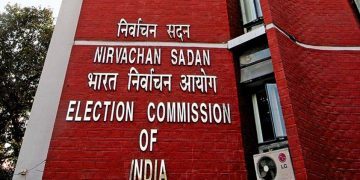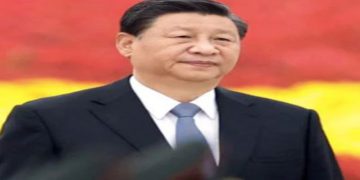The remarks made by the Punjab and Haryana High Court have burst many bubbles. Upbraiding Haryana’s BJP state government on the manner in which it handled the aftermath to the pronouncement of the conviction of Gurmeet Singh Ram Rahim, head of the Dera Sacha Sauda, the court has said that the government surrendered to the situation and permitted it to escalate, letting a city like Panchkula burn for political motives.
The court admonished the state government for ‘crucifying’ a small DCP of Panchkula while ‘taking orders from the political masters who have been giving wrong directions’. The court did not stop here. When Additional Solicitor General Satya Pal Jain, appearing for the Union government, submitted that the control of the violence was a state subject, the court questioned whether Haryana was a part of India or not. It went many steps ahead by asking whether Narendra Damodardas Modi was a BJP Prime Minister or the Prime Minister of India.
These harsh words of the High Court have come as a great surprise to many in this country. Added to this is the belligerence demonstrated by journalists after the Dera Sacha Sauda violence. The media was being bashed as ‘paid’ or ‘fake’ by all sides in the recent past.
The non ruling parties found no space for their opinions to be heard. The window had been rapidly closing for them to express their points of views. The BJP, on the other side, coined words as ‘Presstitute’ and such like derogatory terms to describe the media that did not toe the approved line.
They were also, very smartly, investing in the future by keeping up the abuse on the media for any misdemeanour that it may exhibit in the days to come. The media, on its part, was more than willing to bend backwards to please the powers that be because the owners had much to lose in their vast business empires if they dared to falter in their unstinted support.
The other very pertinent development in the past week is the 500 paged judgement of the Supreme Court on the privacy issue. The apex court had been subjected to various government claims that, in hindsight, seem highly irresponsible. The Union government had the audacity to stress before the court that the citizen had no absolute right over her own body.
The arguments given by the Union to curtail citizens’ basic rights seemed incredulous to us normal people. The rumour was that the court will most likely take a namby-pamby view and pronounce a judgement that will be unclear in every aspect. This opinion was being consciously floated through a vast chunk of the media by the powers that be.
However, the Apex court’s highest Bench, consisting of nine judges, unanimously proved that they did not want to go down in history as people who had no spine to stand up and differentiate between the right and wrong. They probably also did not want to be noted as regressive judges in the 21st century who were unable to protect their countrymen.
The judges did, indeed, surprise everyone with their strong words and clear cut directions. Declaring Right to Privacy as a Fundamental Right, the judges of the Apex court have ensured the basic dignity of life for every Indian.
The issues of privacy arose primarily from the arguments concerning Aadhaar enrolment. This matter is yet to be defined in a physical form in the yet to come 5-judge bench judgement.
However, the bubble has been punctured. The image of Mr Narendra Damodardas Modi of being an unchallenged and an extremely forceful Prime Minister has taken a beating and has been grievously damaged by these judgements. The claim by some critics that the courts’ attitude demonstrates a change in India’s social atmosphere may not be off the mark.






































